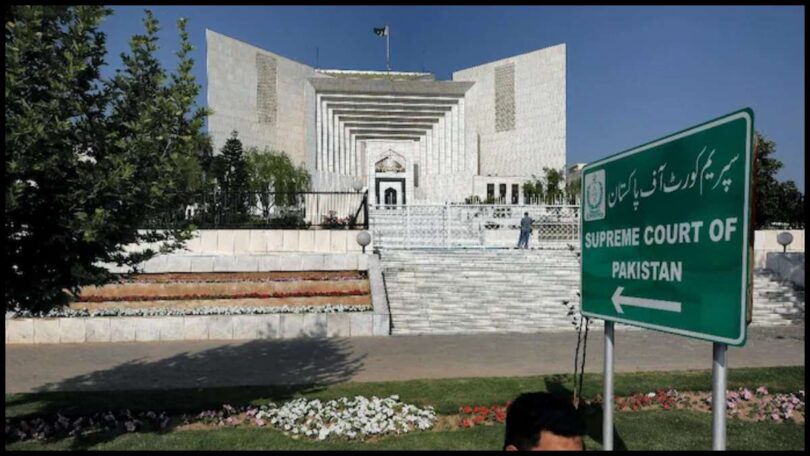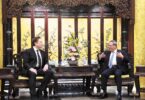The Supreme Court of Pakistan has rejected a petition seeking recently-held general elections to be declared null and void and slapped a fine of 0.5 million rupees on the petitioner. According to the details, a petitioner namely Brigadier Retired Ali Khan requested the apex court to declare the February 8 general polls as null and void due to alleged violations of democratic norms and electoral integrity. The plea had also urged the court that the new elections should be ordered within 30 days under the direct supervision and oversight of the judiciary to ensure fairness, transparency, and accountability. A three-judge apex court bench led by Chief Justice of Pakistan (CJP) Qazi Faez Isa undertook the proceedings on Wednesday, whereas the petitioner did not appear after filing the petition. The court was informed that the petitioner left the country a day earlier through a connected flight to Bahrain and is not available to pursue his plea.
Pakistan has been struck into acute socio-political and religious intolerance wherein the entire nation is polarized on ethnic, sectarian, religious, and political grounds with the least acceptance and no sense of coexistence with other competing factions and communities. During the Elections, multiple candidates run from a single constituency, and only the highest bidder is declared champion but every loser claims his victory alleging others of rigging without considering his political muscles and approval in the masses. At the time, almost all political parties accepted the results of the electoral districts where they succeeded, refusing results and demanding reelections where they faced a setback. The months-long exercise cost billions of rupees, valuable time, national efforts, and resources to cover this important milestone in the political history of the country. Now this landmark achievement could not be spoiled for removing ungrounded allegations and fulfilling the selfish demands of any individual candidate, political party, or its supporters. Whether any political party, leader, or supporters can bear the colossal cost of reelection from their pockets? or they only intend to accomplish their nefarious agenda at public expense through mere oral thrush.
Michel Foucault, a prominent philosopher, once asserted that we are perhaps living at the end of politics. With the decline of utopian visions and radical alternatives to capitalism, the focus shifted toward developing new types of relations with ourselves. Politics, which was once associated with parties and social structures, transformed into an individual, moral concern. In this context, the self became the battleground for contemporary politics. During the past decades, political change underwent a significant shift. Rather than external issues and foreign policy struggles, the emphasis turned inward, a struggle against our inner selves among the leaders. The collapse of collective grand narratives led intellectuals to explore self-transformation as the path to social change. The therapeutic sensibility emerged, treating the self as a mark of conquer. Politics degenerated into a quest for self-realization rather than collective transformation. Instead of addressing social issues, the confessional culture encouraged endless self-examination and self-empowerment.
Today’s Pakistan confronts a similar challenge of self-projection, wherein political leaders deem themselves more important than the public, the country, and national prestige as well. This is the reason that no one is ready to accept his defeat and each one demands his victory even at the cost of the country’s debacle and collapse of the democratic system. After all, the worst impact of self-politics lies in its focus on the individual, often overshadowing broader societal issues. As we grapple with our inner struggles, we must not lose sight of collective challenges that demand collective solutions, resilience, and teamwork to jointly achieve national goals. Otherwise, the system will collapse and we all will be losers, with no one to celebrate his victory as we experienced in the past over half a century ago. All must acknowledge the fact, that leaders are always recognized by nations, no nation is ever branded by its leader.







